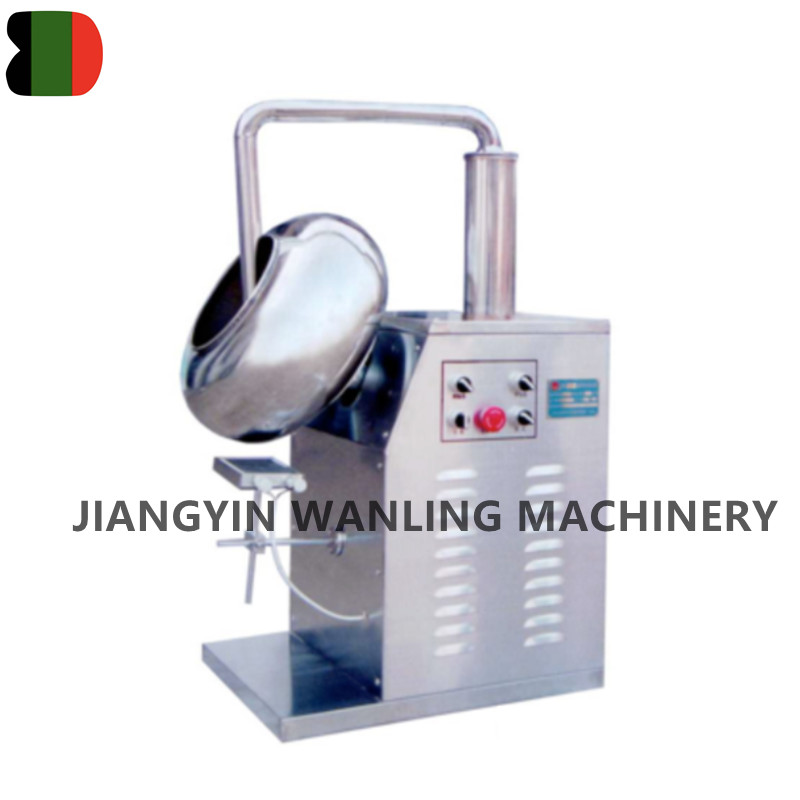Advances in automation and artificial intelligence (AI) are significantly enhancing the capabilities, efficiency, and flexibility of coating machines. Here’s how these technologies are being integrated into coating machines:
Automation Integration
Automated Control Systems:
Precision and Consistency: Automated control systems ensure precise and consistent application of coatings by continuously monitoring and adjusting parameters like speed, pressure, and temperature.
Reduced Human Error: Automation minimizes human intervention, reducing the likelihood of errors and inconsistencies in the coating process.
Programmable Logic Controllers (PLCs):
Customization: PLCs enable easy programming and reprogramming of the coating machine for different products and coatings, allowing for quick changeovers and customization.
Real-Time Monitoring: They provide real-time monitoring and control of the coating process, ensuring optimal performance and immediate response to any issues.
Robotic Arms and Automated Handling:
Efficiency: Robotic arms and automated handling systems can load and unload materials, apply coatings with high precision, and handle complex shapes and surfaces efficiently.
Safety: These systems improve safety by reducing the need for manual handling of materials, which can be hazardous.
Artificial Intelligence Integration
Predictive Maintenance:
Condition Monitoring: AI algorithms analyze data from sensors to predict when maintenance is needed, preventing unexpected breakdowns and reducing downtime.
Optimized Maintenance Schedule: Predictive maintenance ensures that maintenance activities are performed only when necessary, extending the lifespan of the machine and reducing costs.
Quality Control and Inspection:
Defect Detection: AI-powered vision systems can inspect the coated surfaces in real-time, detecting defects such as uneven coating, bubbles, or contaminants with high accuracy.
Consistency: AI ensures uniform quality across all products by adjusting the process parameters based on real-time inspection data.
Process Optimization:
Adaptive Control: AI algorithms can adaptively control the coating process, adjusting parameters on-the-fly to optimize the coating quality and minimize material waste.
Data-Driven Decisions: Machine learning models analyze historical and real-time data to identify the most efficient process settings and improve overall productivity.
Smart Manufacturing:
Integration with IoT: Coating machines integrated with IoT devices collect and transmit data to AI systems for comprehensive analysis, enhancing decision-making and process optimization.
Factory Automation: AI systems can coordinate with other automated machines and systems in a smart factory, streamlining production and improving throughput.
Examples of AI and Automation in Coating Machines
Automated Recipe Management:
Recipe Storage and Retrieval: Automation systems store multiple coating recipes, allowing for quick retrieval and setup for different products.
Parameter Adjustment: AI can adjust the parameters of these recipes based on material properties and desired outcomes, ensuring optimal coating results.
Energy Efficiency:
Smart Energy Management: AI algorithms optimize the energy consumption of the coating machine, reducing operational costs and environmental impact.
Peak Load Management: Automation systems can schedule energy-intensive operations during off-peak hours, minimizing energy costs.

Enhanced User Interfaces:
Intuitive HMI: AI-powered Human-Machine Interfaces (HMI) provide intuitive user interfaces that guide operators through the setup and operation processes, reducing the need for extensive training.
Voice and Gesture Control: Advanced interfaces may include voice and gesture control, making it easier for operators to interact with the machine.
Challenges and Considerations
Integration Complexity:
System Compatibility: Integrating AI and automation with existing coating machines may require significant modifications and compatibility checks.
Technical Expertise: Implementing and maintaining AI and automation systems require skilled personnel with expertise in these technologies.
Cost Implications:
Initial Investment: The upfront cost of AI and automation technologies can be high, but the long-term benefits in efficiency and productivity often justify the investment.
ROI Assessment: Companies need to carefully assess the return on investment (ROI) to ensure that the benefits outweigh the costs.
By integrating advances in automation and AI, coating machines can achieve higher levels of efficiency, precision, and flexibility, ultimately leading to improved product quality, reduced waste, and lower operational costs. These technologies also enhance the ability to quickly adapt to changing production needs and market demands, making coating processes more competitive and sustainable.



 Español
Español














